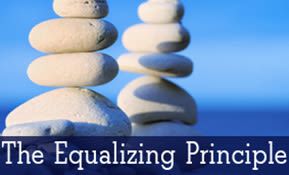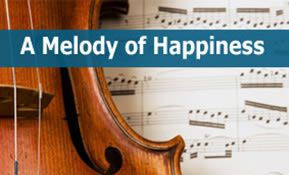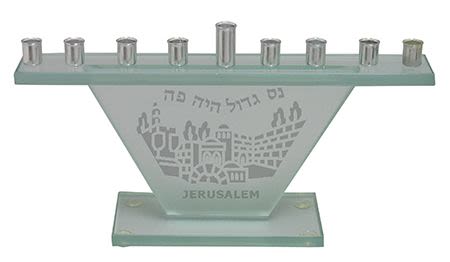
A Magnificent Gift: Debts
This is the amazing story of how Rabbi Shalom Arush owed a hopeless amount of money and the miraculous path he took to succeed in repaying every last cent he owed…

Translated by Rabbi Lazer Brody
In Forest Fields, Part 45
About thirty years ago, Hashem gave me a wonderful gift—debts.
Not small debts of thousands of dollars, but rather large debts which amounted to many tens of thousands. By natural law, these debts should have been impossible to return, because I would have had to work day and night just to pay off the monthly interest.
 I did some soul-searching and understood that since there’s no suffering without prior transgression, then surely I must need a tikkun (“soul correction” to repair some spiritual flaw), and due to this, I had become a debtor.
I did some soul-searching and understood that since there’s no suffering without prior transgression, then surely I must need a tikkun (“soul correction” to repair some spiritual flaw), and due to this, I had become a debtor. I said to myself: These debts are like a tree. Every solution I find, every effort I make, is only like cutting a branch off of the tree. In place of the severed branch, other branches will grow back. The only solution is to make a thorough treatment at the root of the problem. This is only possible by prayer and repentance.
My teacher and Rabbi, Rav Eliezer Berland, Shlit"a, who also went through a time in his life when he had heavy debts, encouraged me and said, “You should know! The way that the debts brought me close to Hashem – nothing else in the world ever brought me so close!”
I received additional encouragement from my friend, who owed a sum of money to a certain Rabbi. That Rabbi told him that according to the halacha (Jewish religious law), my friend was obligated to leave the Yeshiva and work, until he would have paid off his debt.
That friend was a very honest, upright person. He went out and did hitbodedut, relating to Hashem that the Rabbi had told him to leave the Yeshiva and go to work. Then, he made the following proposal to Hashem: instead of going to work to do odd jobs, forfeiting a great deal of Torah and prayer, he would instead indenture himself into the service of Hashem! How many hours are there in a typical workday? Eight hours? He promised to do eight daily hours of hitbodedut. So it was! Each day, my friend would go and do a full day of hitbodedut in the fields, and he quickly paid off the debt!
True, relative to the large debts that I had, my friend owed only a small amount of money. But his story still gave me great encouragement! I, too, decided to go to work in Hashem's service! And when people would tell me that I was obligated to go to work or to collect charity, I wouldn’t argue. I would listen to their advice and go to work – for Hashem! I’d also collect charity, but from Hashem only!
It was clear to me that Hashem was, is, and will be the only One that can possibly solve the problem for me, especially with these enormous debts. If I would have attempted to cover them by working or by charity, I wouldn’t have been able to pay them off.
Double Profit
I began to do hitbodedut daily, concentrating on the matter of the debts. At the beginning of my solitary personal prayer session, I would thank Hashem for the gift of debts. I clearly recognized the debts as a marvelous gift inspiring me to come closer to Hashem. From enduring these debts, I immediately benefited in two ways:
First, I was inspired to lengthen my prayers, since without the debts my prayers would have been much shorter. In such dire trouble, one has no difficulty praying from the depths of the heart and crying out to Hashem with all his might. I saw in this a great salvation. I had been stimulated to pray with power and with heartfelt intent as opposed to mechanically going through the motions of hitbodedut. I clearly recognized the enormous spiritual difference between the two types of hitbodedut that I had experienced, before I had the debts and after I had the debts.
Second, with every personal prayer regarding the debts, Hashem granted me another insight – additional spiritual elements in my life that I needed to correct. By virtue of the debts, I became closer and closer to Hashem, and this gave me great happiness.
In summary, I recognized that my spiritual state was improving every day by virtue of my prayers and repentance. This filled me with tremendous joy, for nothing is greater than getting close to Hashem, as King David, of blessed memory, said, "But as for me, G-d's nearness is my good," (Psalm 73:28). For in truth, what brings happiness in this world? Even if a man has all the wealth on earth, this world's bitterness will not bring him satisfaction. If so, what joy is there on earth, except for coming close to Hashem? With this in mind, at the outset of each hitbodedut, I expressed sincere gratitude for the debts.
After I looked at my predicament with eyes of emuna and rejoiced in the debts, I danced with happiness at every opportunity. It reached a point that people who knew me and knew of my situation were amazed. They wondered, “What on earth is he dancing about? Such a terrible predicament, and he’s dancing and happy! Has Shalom lost his wits, G-d forbid?
I’d answer them like the Simple one in Rebbe Nachman’s tale of “The Simple and the Clever” (Tales, 13): “I live a good life, lacking nothing whatsoever. What constitutes my good life? I have debts!”
I never became at all disoriented from my debts. I believed with wholehearted faith that there is no error in Hashem's Divine Providence. The fact that I have debts is surely for the good. I used to encourage my wife that we’d soon emerge from debt. I reassured her that once we pass this test without losing our steadfast faith – serving Hashem with prayer and repentance – we’d be in the clear. Even better, we’ll have attained marvelous tools of faith and security, tools that will accompany us throughout our lives.
He Who Knows Secrets
After I thanked Hashem profusely, I would pray for a long time that Hashem should enlighten me as to the wrongdoing I had been punished for by becoming a debtor, and that He should grant me the privilege to repent and to make a spiritual rectification. I prayed that I’d be able to repent daily for this wrongdoing until it was fully atoned for it. And since I still didn’t know for which specific wrongdoing I had become a debtor, most of my prayer was general:
"Master of the World! The wrongdoing, for which I have been punished with debts, is clear and known only to You. For our sages have said that there is a wrongdoing for which a man becomes a debtor, but they did not reveal which wrongdoing. Master of the World, please have mercy upon me. Forgive me for my misdeeds. Grant me the opportunity to repent and to atone for them. Please be patient with me."
A New Proximity
And so, I prayed daily for a long time, at least an hour each time, and every time, I saw miracles, salvations, and Divine protection. Within a year from the time I began my intensive service of Hashem and daily hitbodedut, Hashem helped me to be free of all my debts!
My Rabbi and teacher encouraged me. I was privileged with a new proximity to Hashem, a closeness which I would not have possibly merited except by these very debts. I also received many wonderful gifts of faith and spiritual security, gifts which to this day accompany me personally and help me in the service of the entire Jewish people.
Throughout all the time that I had debts, I was not saddened by them. I was happy all the time. Even though we sometimes lacked a loaf of bread at home, I felt no sadness. We simply repented daily and prayed in regard to the debts; as such, we were spared from all stern judgments.
People must understand that when one feels sadness, it is the result of stern judgments from Above. The Heavenly Court asks, “Why doesn’t he wake up and evaluate himself? Why doesn’t he search for the root of his problem?” A person has debts, but instead of repenting, he foolishly attributes the debts to nature and happenstance. This lack of spiritual awareness triggers a stiff measure of harsh judgments upon a person, as the Torah says: "And if despite this you will not heed Me, and you behave towards Me with casualness, I will behave toward you with a fury of casualness; I will chastise you, even I, seven ways for your sins." (Leviticus 26:27-28).
Stern judgments manifest themselves in all sorts of ways to torment a person until he realizes that no tribulations come without prior transgression. The moment a person wakes up and tries to repent, the stern judgmentscome to a halt. Without them, one feels no sorrow. Therefore, one who repents daily never suffers, even though he has not yet completed the necessary spiritual correction, or tikkun, and is still in a difficult material situation. Emuna illuminates his soul, and he feels joy.
Even more so, if he does his best to prevent other people from suffering because of his debts, Hashem helps him and redeems him from the debts easily and quickly.
It could have been different
I would not have been able to return the debts so quickly, had I sunk down into a negative mental state, blaming myself or my wife or other people, becoming pressured, unhappy, despairing, tormenting myself or feeling pathetic, looking for pity, shaking off all responsibility and causing others anguish. Who knows if to this day, I would have ever emerged from debt? Who knows what sufferings could have come about if I would have angered and irritated those whom I owed money? And surely, had I sunk into depression, I wouldn’t have received the wonderful gifts which I received. I wouldn’t have written this book and other books, I would not have established Yeshivot and brought secular Jews closer to Torah, and I would not have rescued many debtors whom I have guided to emerge from debts for large monetary sums.
All these accomplishments were possible because I clung to my emuna in Hashem and was therefore able to come closer to Him, to believe that all is for the good, and to recognize that this is what He wills. I refused to sink into the quagmire of depression, but rather went happily to communicate with Hashem with the goal of becoming closer to Him from these very debts.
Hashem rescued me from my huge debts in the easiest of ways, through the wonderful path of prayer and repentance. This experience inspired me to teach Torah classes and write books in order to guide other Jews in this path of repentance and prayer so that they too will merit the main part of the salvation—getting closer to Hashem. Finding the practical solution to the difficulties at hand actually becomes secondary.
To be continued.













Tell us what you think!
Thank you for your comment!
It will be published after approval by the Editor.